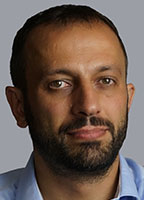Cancer progression from initiation to metastasis development is intimately linked to stem cell biology.
This is not only true in solid cancers, such as breast, prostate, or lung cancer, but also in liquid malignancies, such as leukemia, multiple myeloma, and myelodysplastic syndromes. Cancer research in stem cell pathways has focused on how niche-derived cues affect epithelial identity, tissue morphogenesis, and metastasis. Our researchers have explored how niche signals regulate blood stem cell, mammary epithelial cell, skin and muscle stem cell quiescence, and self-renewal. These efforts have led to ground-breaking findings about the early spread of cancer, as well as how cancer cells adopt behavior of normal niches to enter dormancy after spreading through the body. Our scientists also explore the role of embryonic and fetal stem cell programs and use primary or induced pluripotent stem cells to model normal and cancer cell plasticity of childhood and adult blood cancers.
Our cancer researchers also decipher how normal mechanisms in adult stem cell functions are exploited in malignancy. Studies have demonstrated the ability of blood stem cells to count and remember their cell divisions, which could underlie alterations leading to blood cancers; establish induced pluripotent stem cell (iPSC) lines from patients with myeloid malignancies defining the distinct stages from clonal hematopoiesis or pre-leukemia to myelodysplastic syndrome (MDS) and acute myeloid leukemia (AML); and identify therapeutic vulnerabilities in leukemic stem cells as a way to eradicate the disease and prevent leukemic progression and relapse.
Investigators with a major focus in cancer stem cells include:






